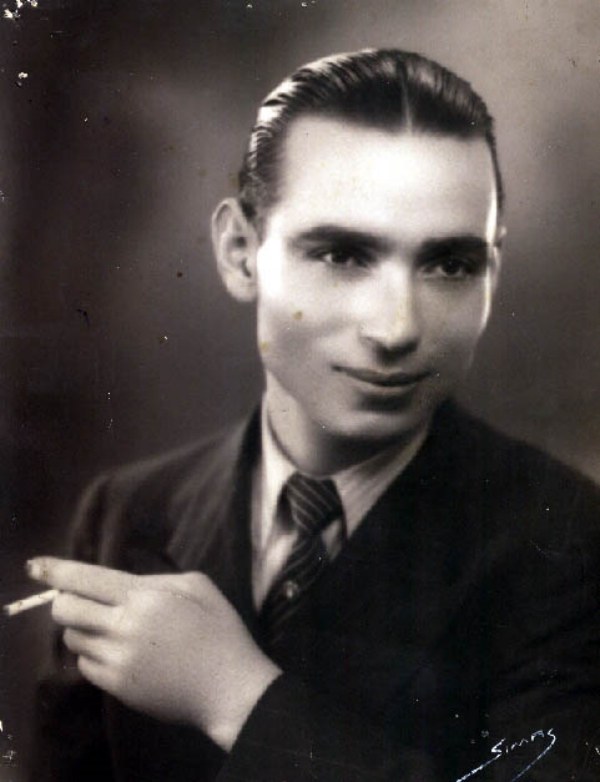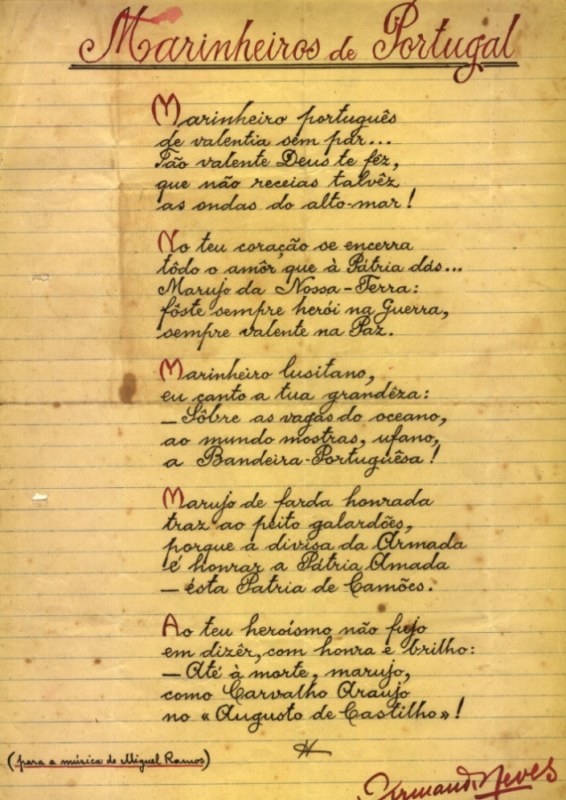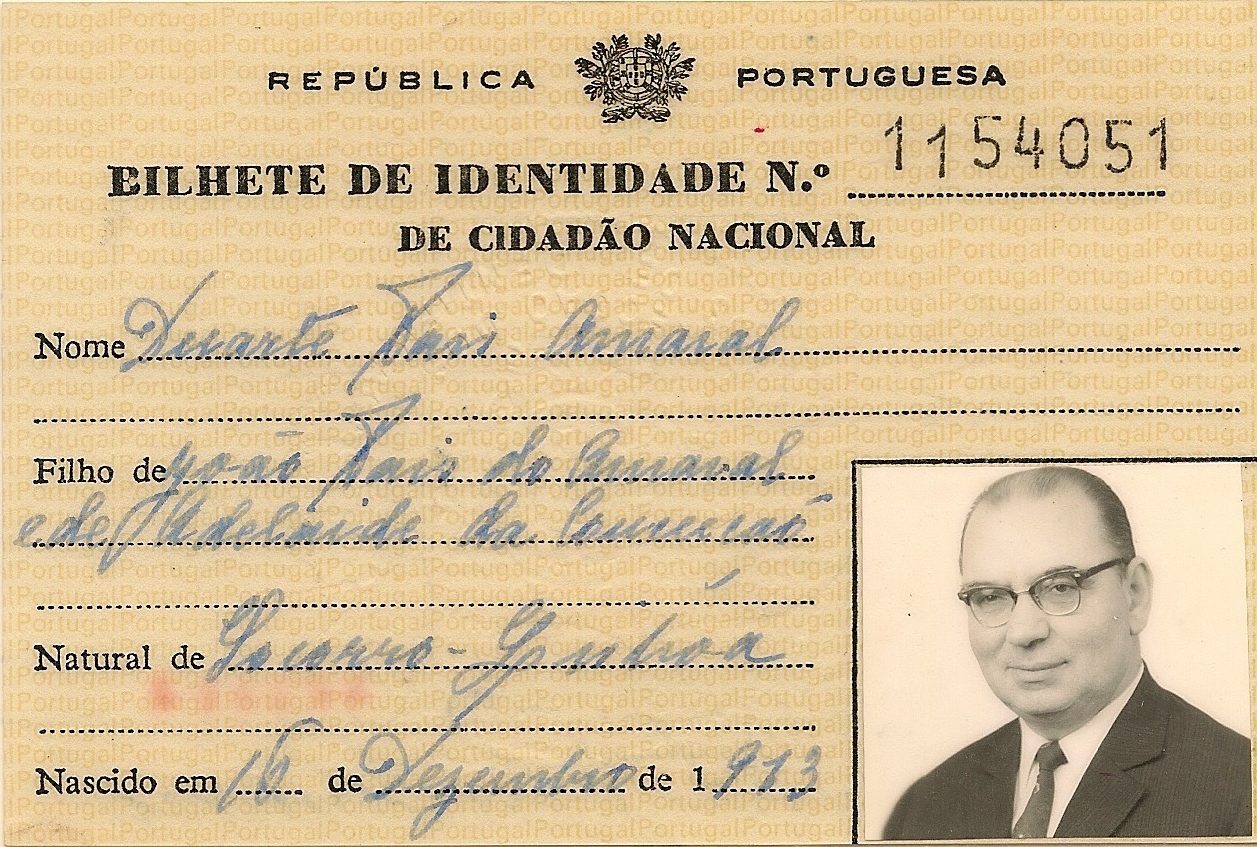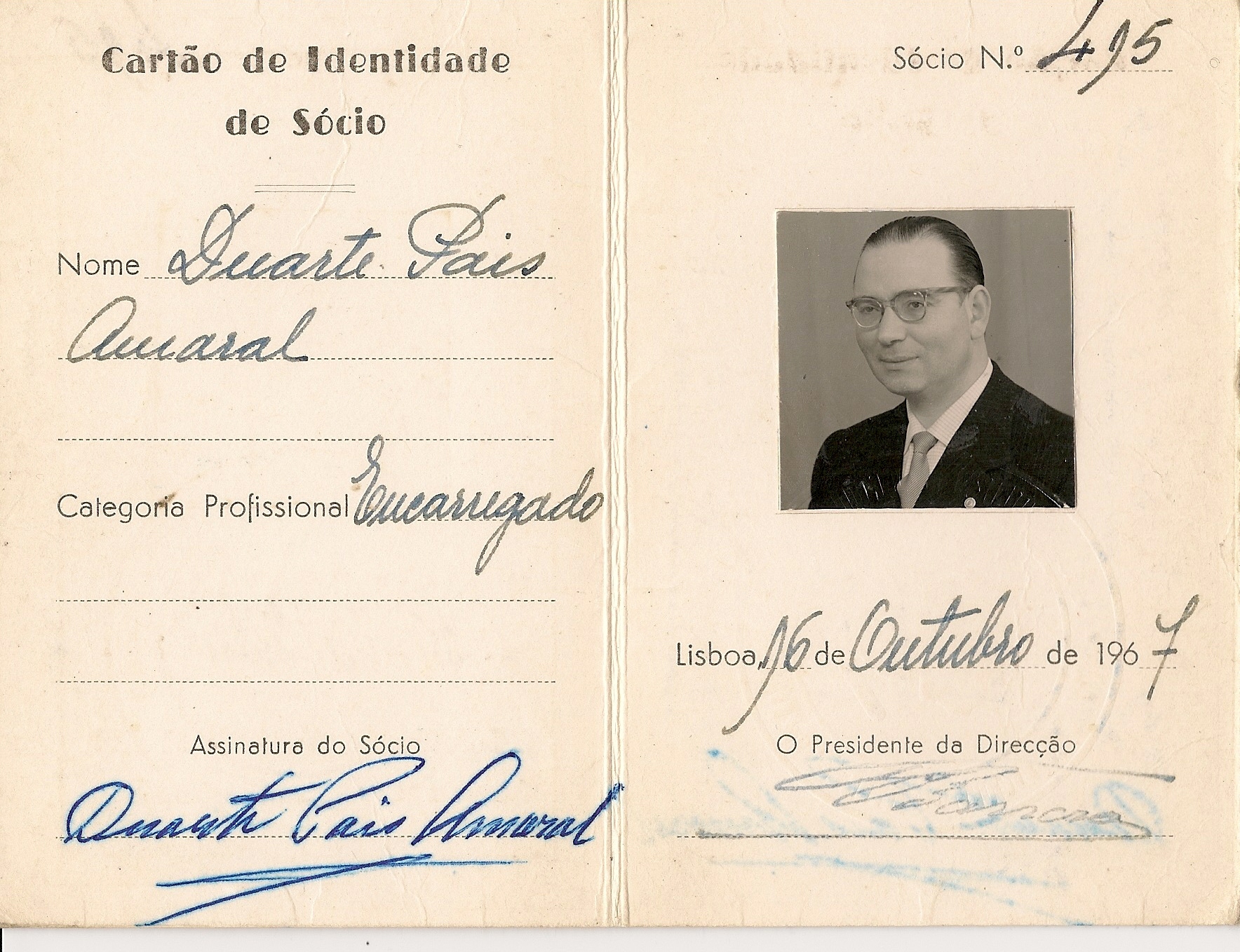Know more:
Duarte Pais
(N. 16 December, 1913 - M. 6 November, 1978)Son of João Pais do Amaral and Adelaide da Conceição, Duarte Pais Amaral was born in Lisbon, in the parish of Socorro, on December 16, 1913.
Duarte Pais, in addition to having worked as a commercial employee, developed his entire professional career as a worker at the BIS rubber factory, where he came to be in charge of the workshops.
At the same time Duarte Pais developed a particular taste for fado and, without ever giving up his professional career, he went on gradually, making a career as a fado singer. At the age of 18 he began to sing at private parties with other friends and, from there, he made a journey that included practically all the cultural and recreational collectives in Lisbon.
In the 1930s and 40s, in parallel with the great dynamics of the so-called “typical houses”, there are also a large number of collectivities that present, at weekends, matinés and fado and variety shows. Duarte Pais regularly integrates the lists of these shows, namely in spaces such as Sociedade União Operária de Carnide or Academia Musical União Familiar de Telheiras (spaces that show us well the extent of the phenomenon of these shows in a very wide area of the city) and, later, it even takes charge of organizing this type of events.
Later he started to have other types of requests and, in July 1944, he made his debut at Cevejaria Luso, with such success that he would remain several years as a private artist in this space. At this time the newspaper “Canção do Sul” announced: “the singer Duarte Pais, who performed at Cervejaria Luso, no longer appears in the canons of amateurism”, but it was stated that “Duarte Pais is no longer an illustrious stranger (…) - however, we present him as a sentimental singer of good class and who reveals in his fado work a sobriety of style that the public brings together and palms without haggling. ” (cf. “Canção do Sul”, August 1, 1944, pp. 3).
Duarte Pais promoted fado shows at Café Vera Cruz, visited Retiro dos Marialvas and Sala Júlia Mendes, among other spaces. He made numerous tours throughout the country, some of them part of the artistic group of fados “Os Trovadores”, a group that in 1943 still had the names of Alice Magina, João Gonçalves, António Silva and Manuel Delgado and that, throughout the decade, was undergoing some changes in their formation.
His side as a show organizer led him to obtain a special authorization for this purpose from the SNI (National Secretariat of Information) in 1950. For many years he artistically directed the programming of Adega Perez, on Rua Conde Valbom.
Duarte Pais has always been a faithful presence in shows of homage to fellow fado singers and at parties whose funds reverted to charity works. In addition to developing his professional career as a fado singer, integrating the casts of some of the best fado houses in Lisbon, he kept his other daily professional activity at the BIS rubber factory.
Although Duarte Pais did not leave us discographic records that allow us to know his interpretative qualities today, his path in fado spaces and on national tours is notorious, considered “a singer who imposes himself, due to his correct demeanor, and delights us with his pleasant voice ”(cf.“ Guitarra de Portugal ”, December 15, 1946, pp. 4).
It should be added that Duarte Pais was a man with leftist ideals. He was present at the 1st Congress of the Portuguese Communist Party held after the 25th of April, in October 1974. And, at that time, he visited all of Eastern Europe.
He died on November 6, 1978, at his job at the BIS rubber factory. He was 64 and had only 2 years to retire.
His son, Cipriano Martinho Sobreda, handed over to the Fado Museum his father's assets.
Source:
“Canção do Sul”, 16 de Janeiro de 1945;
“Guitarra de Portugal”, 15 de Dezembro de 1946;
“Ecos de Portugal”, 1 de Junho de 1947;
“Ecos de Portugal”, 15 de Julho de 1948;


Bilhete de Convite | Invitation Ticket, Duarte Pais, s/d.

Bilhete de Identidade | Identity Card de Duarte Pais, 1970
